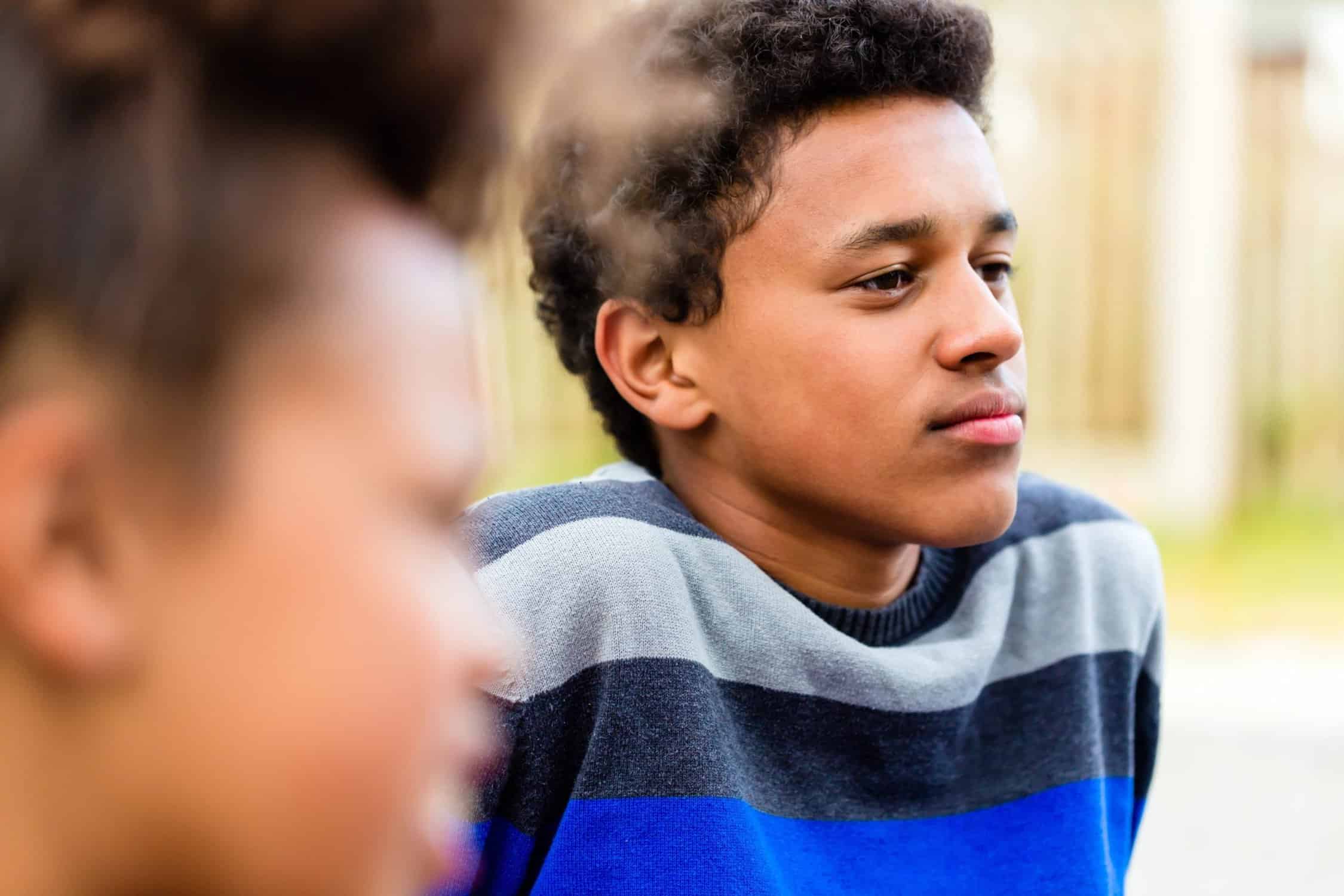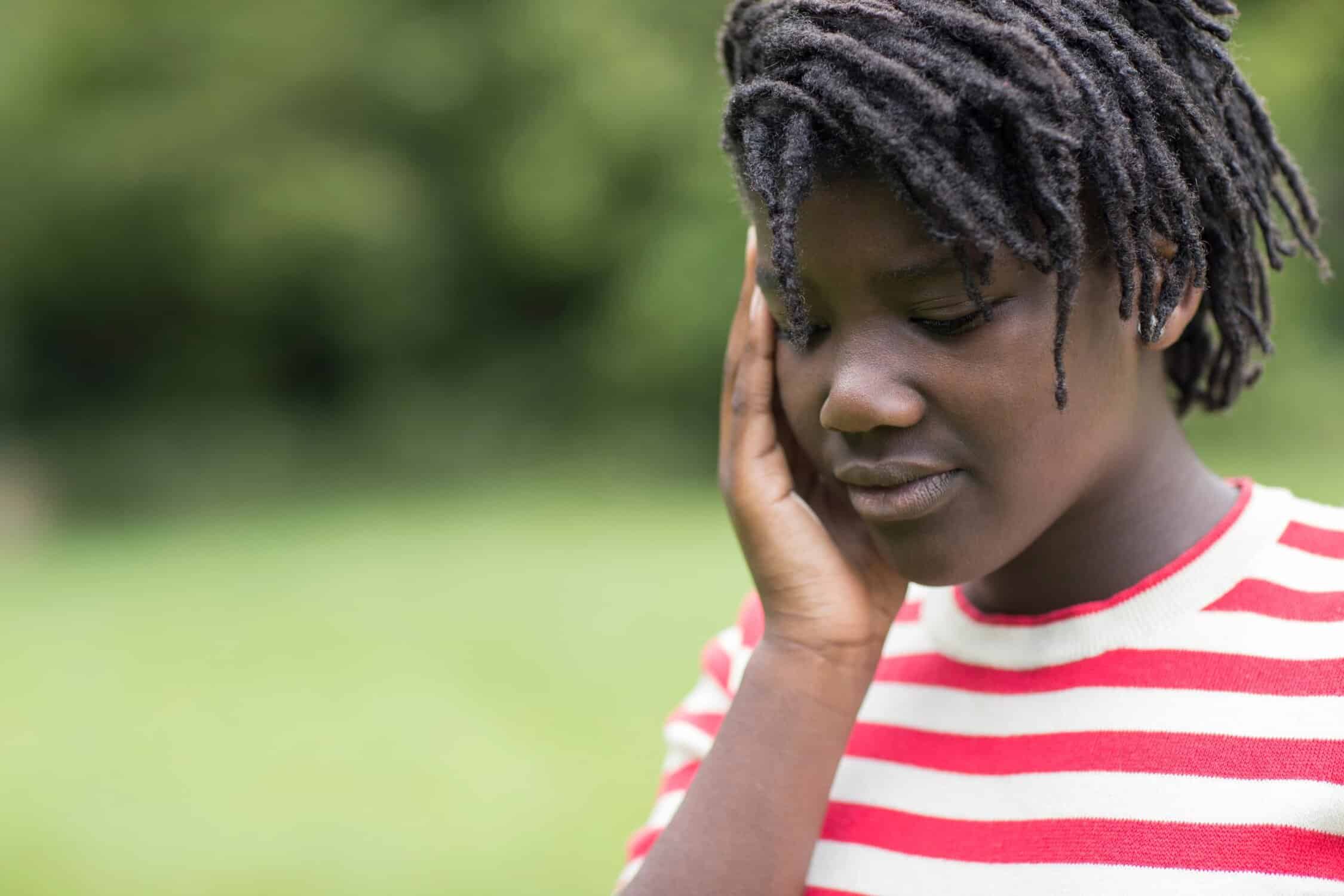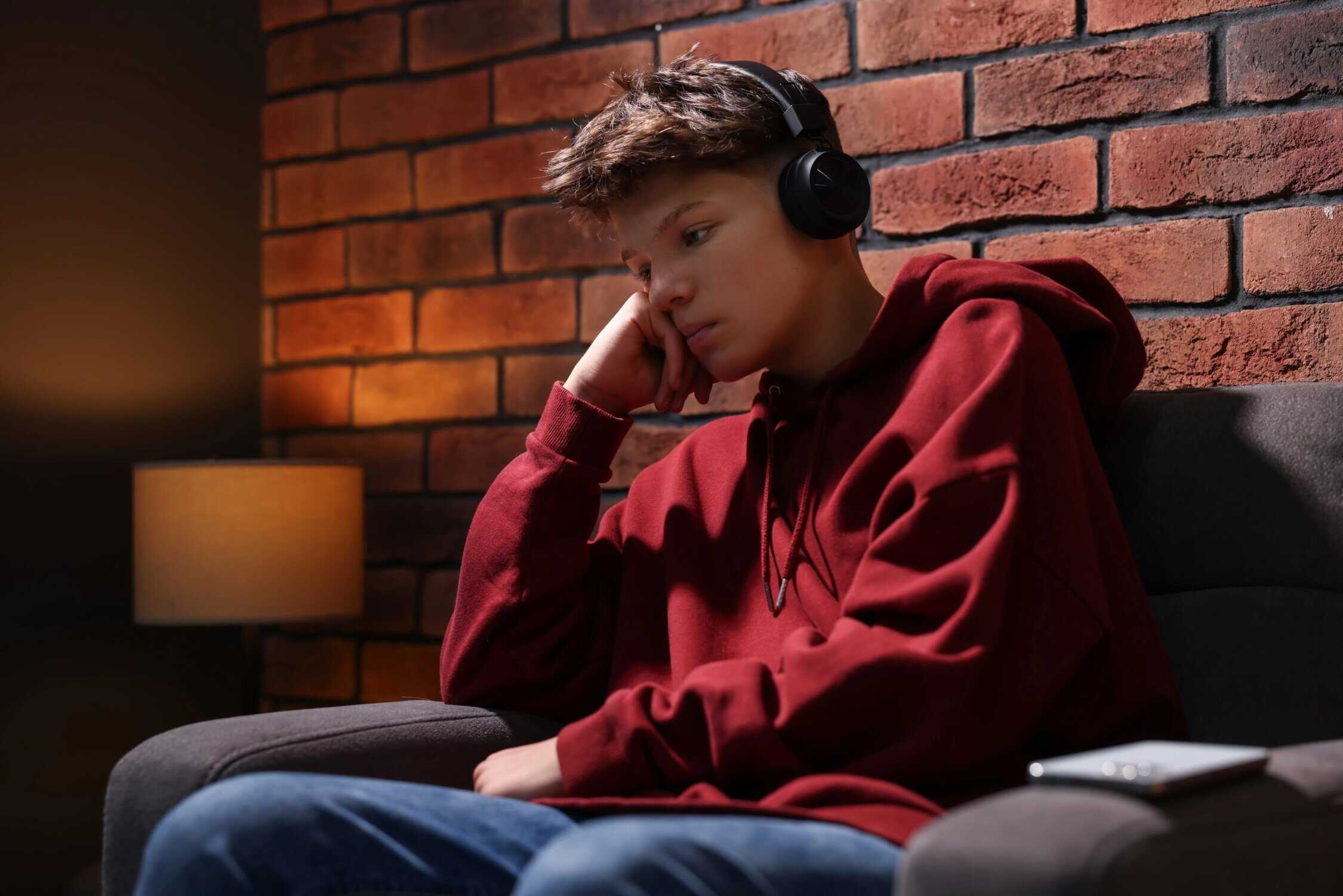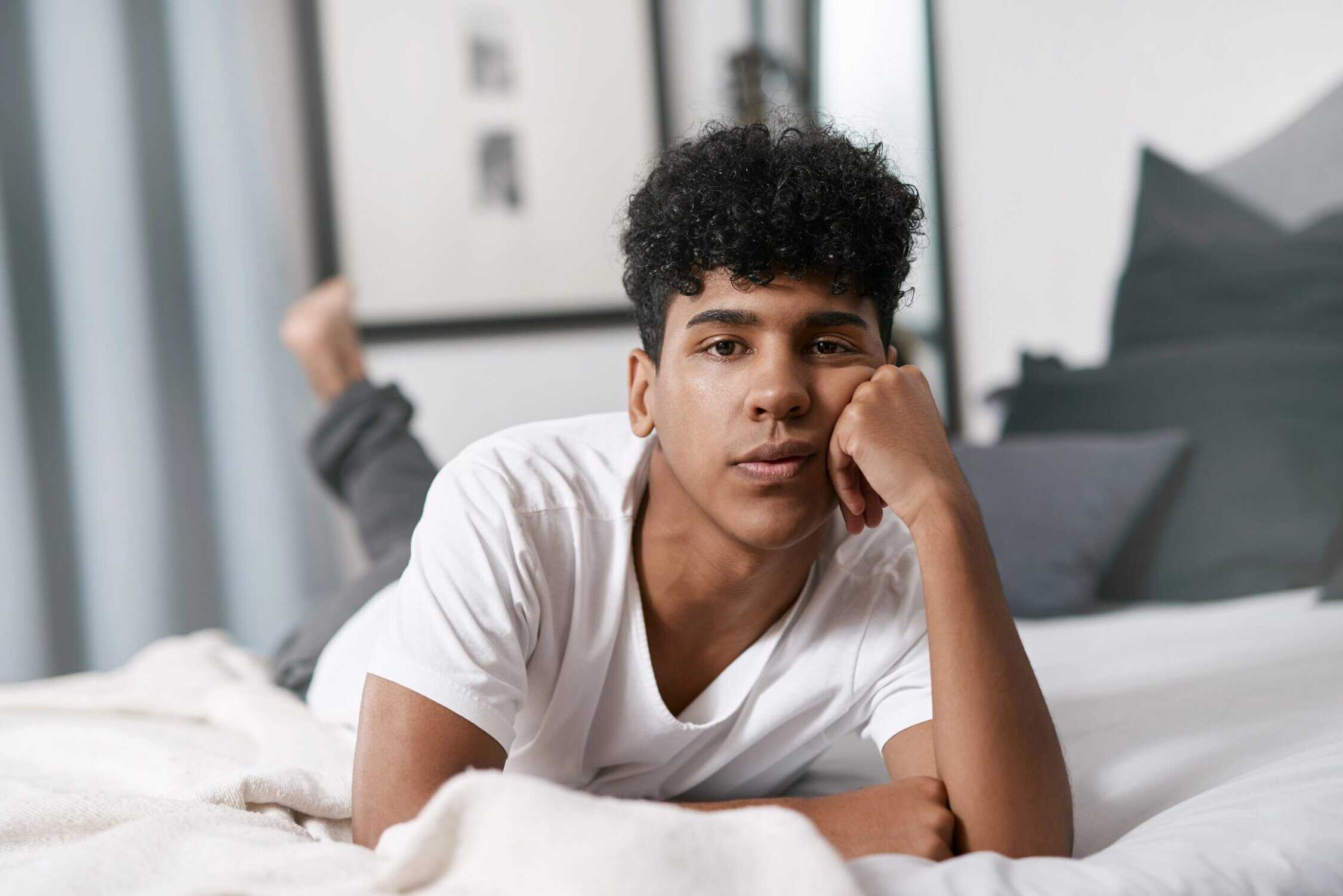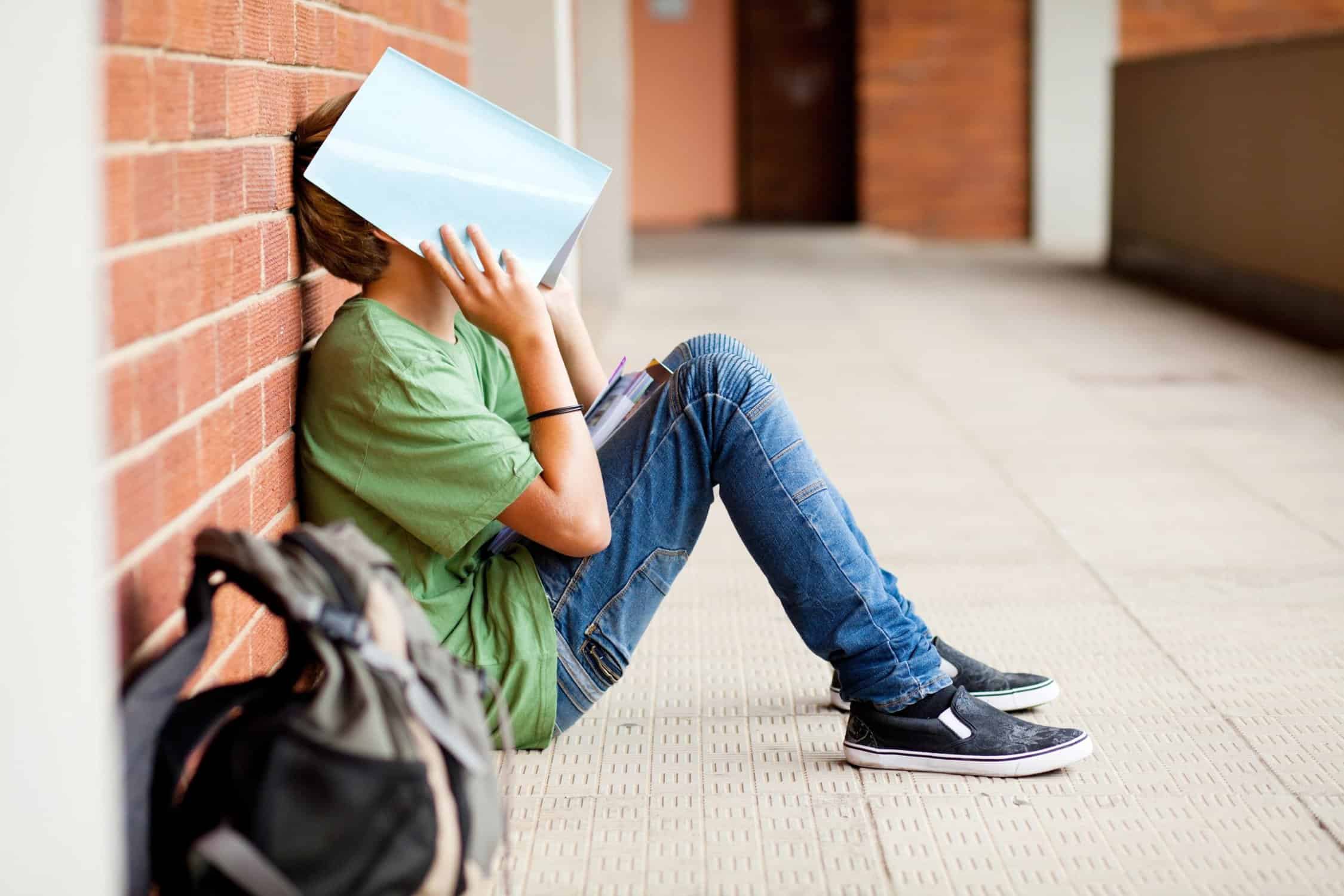Home | Teen Mental Health | Social Anxiety
Teen Social Anxiety: Support and Solutions for Families
Is your teen struggling with social anxiety? During the teenage years, many young people feel nervous in social settings, but when that worry becomes overwhelming, it can interfere with daily life. This is known as teen social anxiety, and it’s one of the most common mental health challenges for adolescents today. With the right support, your teen can learn healthy ways to build confidence and feel more comfortable in social settings. At Key Healthcare, we’re here to guide your family with compassionate care and proven strategies.
Table of Contents
What Is Teen Social Anxiety?
Teen social anxiety is a real mental health condition where your child feels an intense fear of being embarrassed or rejected in everyday social situations. This is sometimes called social phobia, and it can make even simple things, like raising a hand in class or walking into the cafeteria, feel overwhelming.
You’re not alone if this sounds familiar.
Research from the National Comorbidity Survey Adolescent Supplement (NCS-A) shows that about 9.1% of U.S. teens ages 13–18 experience social anxiety disorder, and around 1.3% struggle with severe impairment. Girls are affected more often than boys.
A 2022 study in Clinical Neuropsychiatry found that teens with social anxiety often carry extra burdens like sadness and personality traits that make it harder to cope. In other words, this condition can impact every aspect of your teen’s life.
Left untreated, social anxiety can turn into a chronic mental health condition. The hopeful news? With the proper support, your teen can gain confidence and start enjoying their social life again.
Causes and Risk Factors of Social Anxiety in Teens
When your teen feels overwhelmed in social situations, it’s natural to wonder why. There usually isn’t one cause. Social anxiety builds over time from a mix of temperament, family influences, life events, and how your teen’s brain and body respond to stress.
Understanding the risks helps you choose the right support sooner.
A 2020 study in European Child & Adolescent Psychiatry (the TRAILS project, which followed 1,584 youth from age 11 to 19) offers helpful clues: by age 19, about 1 in 4 had experienced an anxiety disorder; girls were roughly twice as likely as boys.
The strongest independent predictors were:
- Being female
- Having a parent with anxiety or depression
- Higher temperamental frustration
- Lower effortful control (difficulty shifting or focusing attention)
Shyness specifically raised the chance of developing social anxiety disorder, while routine biological measures (resting heart rate, blood pressure, morning cortisol, BMI) did not reliably predict who would develop anxiety.
Some of the main causes and risk factors for developing social anxiety in teens include:
Family History
If anxiety or depression is present in parents or close relatives, a teen’s risk is higher. Genetics and learned coping patterns both play a role.
Personality and Temperament
Some kids are naturally cautious or shy. In the teenage years, high frustration and low effortful control can make social moments feel more threatening, increasing vulnerability to social anxiety.
Environmental Factors
Bullying, social rejection, significant school transitions, heavy academic pressure, or overly critical/overprotective dynamics at home can push an anxious teen toward avoidance.
Overlap With Other Mental Health Problems
Social anxiety often travels with other anxiety disorders or depression. These conditions can amplify each other. More worry leads to more withdrawal, which can lower mood and confidence.
Biological Factors
Even though anxiety feels physical, the TRAILS study didn’t find that resting heart rate, blood pressure, morning cortisol, or BMI alone predicted later anxiety. Day-to-day physiology isn’t a reliable screening tool by itself.
Most cases arise from a complex interaction of risks over time. That’s why social anxiety disorder may look different from teen to teen, even when the name is the same.
Spotting them early helps you seek care sooner. With evidence-based support at Key HealthCare, teens can learn coping skills and feel more confident in everyday social interactions.
Help Your Teen Overcome Social Anxiety
If your teen is struggling with social anxiety, Key Healthcare is here to provide the support they need. Our specialized treatment program helps adolescents build confidence, develop healthy coping strategies, and thrive in social settings. Contact us today to learn how we can help your teen feel more comfortable and connected.
Social Anxiety Disorder Symptoms in Teens
Research, including a 2022 review in StatPearls, shows that teens with social anxiety disorder often struggle with a mix of emotional and physical symptoms that can affect their school and family life.
According to research, the primary symptoms your teen may experience include:
Emotional and Behavioral Symptoms
- Overwhelming self-consciousness in social situations
- Constant worry about being judged negatively or making mistakes
- Performance anxiety, such as freezing during class presentations
- Avoiding group activities or staying home to escape anxious feelings
Physical Symptoms
- Rapid heartbeat, nausea, or stomachaches (somatic symptoms)
- Feeling physically ill even though it’s caused by stress
- Panic attacks with trembling, sweating, or shortness of breath
Everyday Struggles in Social Situations
- Avoiding eye contact or speaking very softly
- Fear of embarrassment in ordinary situations
- Difficulty forming friendships or joining activities
- Patterns of avoidance that can worsen anxiety over time
At Key Healthcare, we understand how tough these symptoms can be — and we’re here to help your teen build coping skills and feel more confident in everyday life.






Our goal in developing Key Healthcare was to create programs that gave teens the guidance they needed to draw on their strengths and realize their potential to live fulfilling happy lives. Based on our own experiences, we believe that everyone has the ability to change if given the proper structure and connection

Ryan Blivas & Evan Powell
Founders of Key Healthcare
How Is Social Anxiety Disorder Diagnosed?
Getting a proper diagnosis begins by simply reaching out to your primary care provider. They’ll ask about symptoms and do a physical exam to rule out medical issues that can look like anxiety (thyroid problems, medication side effects, etc.). If social anxiety still seems likely, they’ll refer you to a mental health expert or a professional adolescent mental health treatment center, such as Key Healthcare.
A specialist (often a clinical psychologist or psychiatrist) will talk with you about school and the social situations that feel toughest. Using DSM criteria (the standards clinicians use to diagnose), they look for a steady pattern of fear of being judged, avoidance or intense distress in social settings, and a significant impact on daily life.
At Key Healthcare, we keep this process warm and low-pressure, and if social anxiety is confirmed, we help your teen step into a treatment plan that works best for them.
How is Social Anxiety Disorder Treated?
The good news is you’ve got solid, research-backed options to help your teen overcome social anxiety. A 2023 review in Faculty Reviews highlights cognitive behavioral therapy (CBT) as a first-line treatment for social anxiety. It also notes growing support for acceptance & commitment therapy (ACT) and the helpful role of medications like SSRIs for some people.
Here’s what we offer at Key Healthcare, along with an explanation of how each treatment benefits you.
Cognitive Behavioral Therapy (CBT)
CBT teaches your teen to recognize unhelpful thoughts and confront feared social situations in manageable steps. Research confirms CBT (with exposure practice) is the gold standard for treating social anxiety disorder and improving day-to-day functioning.
Individual Talk Therapy
We offer one-on-one sessions where your teen can process their fears, learn valuable skills, and set achievable weekly goals. Our therapists tailor the plan so progress feels doable and steady.
Group Therapy
We run supportive practice groups for real-life challenges, such as speaking up, giving presentations, engaging in conversations, and receiving feedback. Hence, the situations that feel scary become easier with coaching and repetition.
Family Therapy
We bring parents in as allies during family therapy. Together, we improve communication, set up at-home support for exposures, and reduce well-meaning rescues that can accidentally keep anxiety going.
Acceptance & Commitment Therapy (ACT)
There’s growing evidence for ACT in treating social anxiety. We help teens make room for anxious feelings while moving toward what matters (friends, school, activities).
Dialectical Behavior Therapy (DBT) Skills
When emotions spike, we teach DBT tools like distress tolerance and interpersonal effectiveness, so your teen can stay grounded and use CBT/ACT skills more easily.
Creative & Experiential Therapies
- Surf therapy: guided ocean sessions plus emotional coaching to build bravery and joy.
- Yoga therapy: breath and mindful movement to calm the body’s alarm system.
- Art & music therapy: safe, creative spaces to express fear, practice coping, and boost engagement.
These therapies complement CBT by lowering your arousal and increasing your motivation.
Medication Options and Clinical Trials
If your symptoms stay intense, our adolescent psychiatry team may add medication to support therapy:
- SSRIs (selective serotonin reuptake inhibitors)
- SNRIs (serotonin–norepinephrine reuptake inhibitors)
- Beta blockers (for performance symptoms like shaking or rapid heartbeat)
We closely monitor your teen to ensure their safety and to confirm that the medication is a good fit.
Research points to ongoing clinical trials (including tech-assisted CBT) aimed at improving access and outcomes. We stay current with this research and update care plans accordingly.
At Key Healthcare, we blend gold-standard treatments (CBT, ACT) with creative supports (surfing, yoga, art, music), plus family and group options, providing your teen with multiple paths to lasting relief.
Managing Social Anxiety Disorder in Daily Life
Managing social anxiety disorder includes how you care for yourself day to day.
Getting enough sleep and staying active helps steady your mood and energy. Avoiding recreational drugs and substance abuse is key, since these can make anxiety and other mental health problems worse.
You can also build social skills step by step and learn healthy ways to handle stress. When left untreated, social anxiety can lead to a decreased quality of daily life and may contribute to other mental health conditions. By making small changes and staying consistent, you give yourself the best chance to feel better in both your personal life and your personal relationships.
It might feel like a big step, but remember why you're here—you’re looking for a way forward.
FAQ
What Does It Mean When Teens Feel Intense Fear in Social Situations?
Teens with social anxiety often feel an intense fear of being judged or rejected. They may experience intense fear even when there is no actual threat, which makes everyday activities feel overwhelming. According to the Diagnostic and Statistical Manual of Mental Disorders (DSM), these anxiety symptoms go beyond normal shyness and may point to social anxiety disorder.
Can Social Anxiety Disorder Be a Chronic Mental Health Condition?
While some teens outgrow mild shyness, social anxiety disorder may develop into a chronic mental health condition if left untreated. A qualified mental health professional can diagnose social anxiety disorder by reviewing symptoms and assessing how the condition affects your daily life and relationships. A proper diagnosis by a mental health professional or mental health specialist can help catch it early. Sometimes, a physical exam is also done to rule out any medical conditions before confirming the diagnosis.
How Is Social Anxiety Related To Other Conditions Like Body Dysmorphic Disorder?
Some people with social anxiety also struggle with body dysmorphic disorder, where worries about appearance make social interactions even harder. These conditions share similar symptoms, such as avoiding crowds or school events. Social anxiety disorder is also linked to other anxiety disorders like panic disorder, showing how mental health conditions can overlap.
Can Social Anxiety Worsen Anxiety In Other Areas Of Life?
Social anxiety can worsen anxiety linked to school or performance. Teens may skip activities, avoid eye contact, and feel isolated. This creates a cycle that affects confidence and mental health over time. If left untreated, it can also increase the risk of substance abuse or other mental health problems later on.
How Can Family Members Support A Teen With Social Anxiety?
Family members play a big role in recovery. By learning about social anxiety, encouraging practice in safe social interactions, and modeling calm coping skills, families help reduce fear and support healing. Mental health professionals also recommend including family members in therapy to strengthen personal relationships and create a supportive home environment.
What Are the Symptoms of Social Anxiety, and Who is Most at Risk?
The symptoms of social anxiety can show up in both teens and even younger children, often leading them to avoid new social situations. This condition, also known as social phobia, goes beyond normal shyness. Along with constant worry about being judged, kids may experience physiological symptoms such as a racing heart, trembling, or sweating. They often feel overly self-conscious, worrying about how others are perceiving every move. Experts believe that biological and environmental factors like genetics, family history, or stressful experiences play a role in its development. Without support, social anxiety can create an increased risk of other challenges later in life, but with early help, your child or teen can learn healthy ways to cope and build confidence.
Sources:
Leigh, E., & Clark, D. M. (2018). Understanding Social Anxiety Disorder in Adolescents and Improving Treatment Outcomes: Applying the Cognitive Model of Clark and Wells (1995). Clinical child and family psychology review, 21(3), 388–414. https://doi.org/10.1007/s10567-018-0258-5
National Collaborating Centre for Mental Health (UK). Social Anxiety Disorder: Recognition, Assessment, and Treatment. Leicester (UK): British Psychological Society (UK); 2013. (NICE Clinical Guidelines, No. 159.) 2, SOCIAL ANXIETY DISORDER. Available from: https://www.ncbi.nlm.nih.gov/books/NBK327674/
Narmandakh, A., Roest, A. M., de Jonge, P., & Oldehinkel, A. J. (2021). Psychosocial and biological risk factors of anxiety disorders in adolescents: a TRAILS report. European child & adolescent psychiatry, 30(12), 1969–1982. https://doi.org/10.1007/s00787-020-01669-3
National Institute of Mental Health. (n.d.). Social anxiety disorder. U.S. Department of Health and Human Services, National Institutes of Health. Retrieved September 17, 2025, from https://www.nimh.nih.gov/health/statistics/social-anxiety-disorder
Rose GM, Tadi P. Social Anxiety Disorder. [Updated 2022 Oct 25]. In: StatPearls [Internet]. Treasure Island (FL): StatPearls Publishing; 2025 Jan-. Available from: https://www.ncbi.nlm.nih.gov/books/NBK555890/
Wolitzky-Taylor, K., & LeBeau, R. (2023). Recent advances in the understanding and psychological treatment of social anxiety disorder. Faculty reviews, 12, 8. https://doi.org/10.12703/r/12-8
Request a Call
Is your teen struggling with mental health or substance use challenges?
Request a confidential call today – our team will walk you through the admissions process, treatment options, costs, and what to expect. Reaching out is a powerful first step toward a healthier future for your teen and your family.
"*" indicates required fields
Insurances we Accept
Contact Key Healthcare Today to Get Started on Recovery from Teen Social Anxiety
At Key Healthcare, we understand how overwhelming social anxiety can feel for teens and for families. Our team of Masters level mental health professionals takes a family-centered approach, helping both your child and you feel supported every step of the way. We offer individualized therapy that gives people with social anxiety the tools to face challenges with confidence, along with creative options like art, yoga, and surf therapy.
Because social anxiety often manifests at school, we also collaborate with teachers and staff to create a classroom environment that is less intimidating and more supportive. Support groups connect teens with peers who truly understand what they’re going through, so they realize they’re not alone.
If needed, our adolescent psychiatry team can carefully guide medication management to help reduce symptoms and enhance the effectiveness of therapy. With the right care, people with social anxiety can start living with more ease.
If your child is struggling with teen social anxiety or even school avoidance, now is the time to seek treatment. Our mental health professionals are here to guide your family with compassion and expertise.
Get in touch with us today. Together, we can help your teen feel safe and connected again.
If you are ready to get help for your child, we are here to help. Feel free to call us, email, or fill out our contact form to get started today. You can also verify your insurance to begin the process.
Check Insurance
Structure, support, and a path forward. See how programs at Key Healthcare help teens thrive.
Take the first step by verifying your insurance today and finding out what coverage options are available for your family. Our team will review your benefits and help you understand how to access the care your teen needs.
Medical Reviewer

Dr. Elnaz Mayeh PhD, LMFT
Share Program
Is your teen struggling?
Call today for a confidential conversation with a teen treatment specialist—we’re here to help.
Programs
Mental Health
Check Insurance
Check if your insurance will cover the cost of treatment.
"*" indicates required fields
- Your information is secure & protected by HIPPA.

